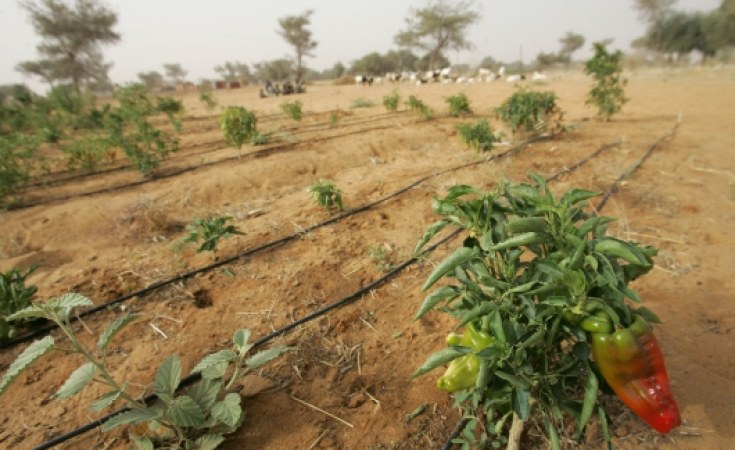Cape Town — Africa has 60 percent of the world's arable land and most of its countries depend on farming as the mainstay of their economies, yet productivity is low, the average size of land holdings is shrinking, soil fertility is declining, fertilizer use is the lowest in the world and rural people are unable to break out of poverty.
These are among the findings of an in-depth examination of agriculture in 16 countries across the continent unveiled in Maputo, Mozambique today.
The 200-page study, the Africa Agriculture Status Report, is published by the Alliance for a Green Revolution in Africa (AGRA), the NGO headed by former United Nations Secretary-General Kofi Annan which aims to help small-scale farmers and end hunger in Africa.
The study focuses on crops that make up most people's diets in Africa, including cassava, maize, millet, oats, potatoes, rice, sorghum, wheat and yams. It examines each stage in the production of food, from the availability of land and good quality seeds to getting crops to market, and looks also at factors such as technology, access to finance and how government policies encourage or inhibit the development of agriculture.
Among the problems the report identifies:
- Productivity lags behind that of other continents. Sixty-five percent of Africa's labour force works in agriculture, but produces only 32 percent of gross domestic product.
- Although 70 percent of good land is uncultivated, land holdings are becoming smaller, with farms on average being less than three hectares.
- Most countries are struggling to integrate formal and customary land tenure systems.
- The cost of fertilizers is high and farmers cannot get enough organic matter to improve soil health.
- There are problems with the supply of good quality seed.
- Women face "severe obstacles" to realising their potential as farmers.
- Governments' political will to support agriculture is "weak".
Among solutions the report proposes:
- Reforming land tenure policies.
- Promoting research, development and the use of modern technology.
- Using integrated soil fertility management methods, and setting up affordable financing for fertilizers.
- Providing technical support and business development services, as well as crop and weather insurance.
- Investing in rural road networks.
- Disseminating reliable data on crop output and stock levels.
- Developing small farmers' organisations.
- Developing policies to remove barriers to women.
- Providing agricultural extension and advisory services.
- Establishing environments enabling the private and public sectors to make investments to boost the productivity of agriculture, and in particular that of small-scale farmers.
- Developing pro-poor, smallholder-centred models for agricultural financing.
In the foreword to the study, Kofi Annan writes that food production could help end hunger -- if Africa's resources can be effectively and efficiently harnessed.
"Increased agricultural productivity, combined with viable agribusiness that adds value to farmers' production and improved access to markets, can drive broader economic growth across the continent and vastly improve food security."
Annan adds moreover that if the six-percent target in the growth rate of agriculture set by Africa's leaders can be met, African farmers could sell their produce not only domestically but in regional and international markets.
The 16 countries covered in the survey were those in which AGRA operates: Burkina Faso, Ethiopia, Ghana, Kenya, Liberia, Mali, Malawi, Mozambique, Niger, Nigeria, Sierra Leone, Rwanda, South Sudan, Tanzania, Uganda and Zambia.


